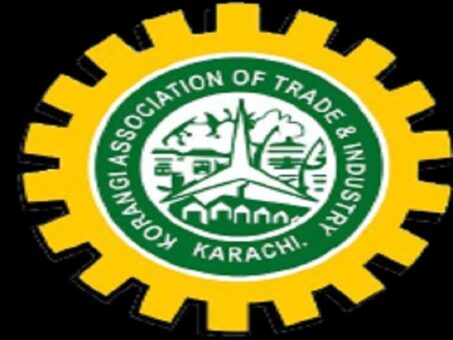Karachi: The industrial sector in Pakistan has called upon authorities to take decisive action in abolishing Section 8B of the Sales Tax Act, 1990, asserting that such a move is crucial for fostering industrial growth in the country.
On Wednesday, March 27, 2024, industry representatives voiced their concerns over the imposition of additional taxes on the edible oil sector, urging the government to reconsider its approach in order to prevent potential economic setbacks.
Sheikh Umer Rehan, former President of the Korangi Association of Trade and Industry (KATI) and former Vice Chairman of the Pakistan Vanaspati Manufacturers Association (PVMA), has emerged as a prominent advocate for the abolishment of Section 8B. Expressing deep apprehension over the government’s taxation policies, Rehan emphasized the detrimental impact of these taxes on the Vanaspati ghee and cooking oil manufacturing industry. He warned that if left unaddressed, these tax measures could lead to the ruin of numerous businesses operating within the sector.
The implementation of Section 8B has compounded existing challenges faced by industries, exacerbating capital shortages and impeding growth prospects. Rehan underscored the urgent need for regulatory reform, citing billions of rupees trapped within industries due to these tax provisions. He stressed that the burdensome tax regime not only hampers industrial progress but also renders essential cooking oils unaffordable for households across the country.
Highlighting the broader ramifications of such policies, Rehan cautioned against the potential surge in smuggling activities and the erosion of the local industry’s competitiveness. He urged the government to adopt industry-friendly policies, particularly in light of the significant contribution made by the edible oil sector to Pakistan’s export earnings, which exceed 4 billion dollars annually. Ensuring affordable access to essential commodities like oil and ghee, Rehan argued, is paramount for safeguarding the interests of both consumers and industry stakeholders.
In a direct appeal to Federal Finance Minister Muhammad Aurangzeb, Umer Rehan urged swift action in addressing the concerns raised by the industrial sector. He called upon the finance minister to prioritize the removal of unnecessary taxes and regulatory hurdles, particularly those affecting industries involved in Vanaspati ghee and cooking oil manufacturing. Rehan’s plea resonates with the broader sentiment within the industrial community, which seeks tangible reforms to stimulate economic growth and foster a conducive business environment.
As stakeholders await a response from the government, the fate of Section 8B remains a focal point of discussion within policy circles, with proponents of reform emphasizing the urgency of the situation. The outcome of this debate will not only shape the trajectory of the industrial sector but also carry significant implications for Pakistan’s broader economic landscape.
In conclusion, the industry’s call for the abolishment of Section 8B underscores the pressing need for regulatory reform in Pakistan. Amidst mounting challenges, stakeholders are united in their appeal for a more conducive business environment that promotes investment, innovation, and sustainable growth.
